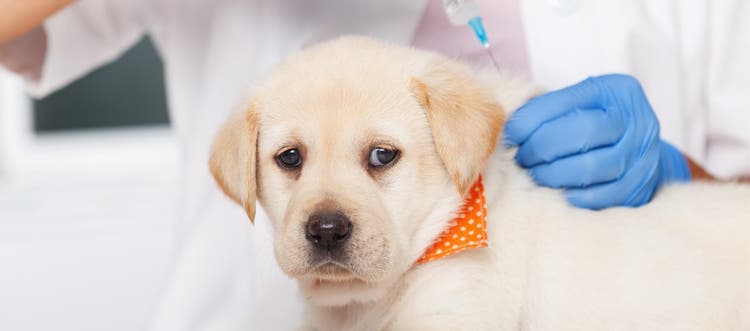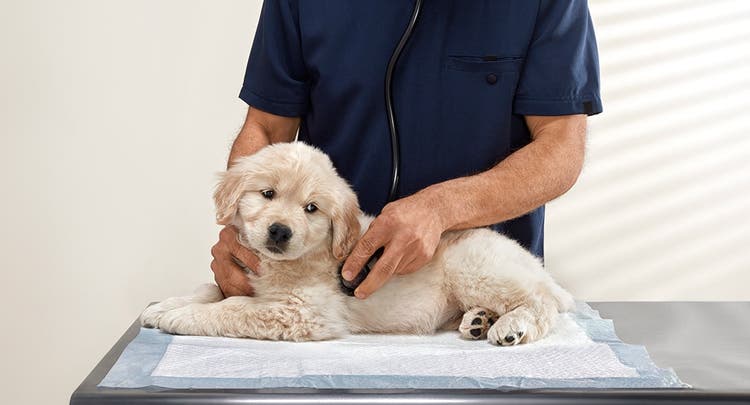Which vaccines are crucial to pet health
Vaccinating a dog or cat against common diseases is one way to protect your pet and help them live a happy, healthy life. So why are vaccines so important to household animals? And what vaccines should pet owners be aware of? Let’s dive into the details.
Why Should You Vaccinate Your Pet?
If your pet is healthy and mainly spends time indoors, it might be easy to assume they don’t need to be vaccinated. However, vaccines can prevent common pet illnesses and help you avoid costly treatments for preventable diseases, regardless of if your pet is indoor or outdoor.
Vaccinations prevent diseases from being passed between animals and from animals to humans. They also increase the safety of your pet when exposed to wildlife diseases, such as rabies and distemper. In fact, in many states or counties, local ordinances require certain vaccinations. And if you ever want to board your pet, they may have to get vaccinated to be around other animals.1
For animal vaccinations, there are core vaccines and non-core vaccines. Core vaccines are considered vital to all pets based on risk of exposure, severity of disease or transmissibility to humans.2 When you take your pet to their first vet visit, your veterinary team will communicate which vaccines are recommended for your pet based on your geography and your pet’s risk factors. For most pets, vaccines are effective in preventing disease and minimizing clinical signs of infections. Here’s a guide to what vaccines your pet may need and why.
What Vaccines Do Pet Dogs Need?
What vaccines do dogs need? Here’s a list of vaccines that are considered core, or vital to a dog’s health:
- Canine parvovirus (commonly known as parvo): A highly contagious virus that affects dogs’ gastrointestinal tracts. After a puppy completes their initial series of shots, all dogs need a booster every three years or more often.
- Distemper: A severe disease that may cause permanent brain damage. After a puppy completes their initial series of shots, all dogs need a booster every three years or more often.
- Adenovirus: This vaccine protects against both type 1 (cause of canine hepatitis, a severe liver disease) and type 2 (typically known as kennel cough). After a puppy completes their initial series of shots, all dogs need a booster every three years or more often.
- +/- Parainfluenza virus: This respiratory virus can lead to kennel cough in dogs. Puppies may receive an initial round of shots followed by booster shots depending on the dog’s lifestyle risk factors.
- Rabies: A virus that is fatal to pets and can be passed on to humans. State regulations determine the frequency and type of boosters required.3
Non-core vaccines are administered depending on a dog’s exposure to risk. Sometimes these are required for boarding or traveling with your pet. They include:
- Bordetella bronchiseptica: A bacteria that can cause kennel cough in dogs. Dogs at risk for Bordetella bronchiseptica include those that are around other dogs, including during trips to the groomer, doggie daycare, dog park, etc. Dogs are typically vaccinated on a yearly basis.
- Lyme disease: Typically recommended for dogs with a high-risk exposure to Lyme disease-carrying ticks. If you live in or travel to a geographic area where Lyme disease is prevalent, Lyme vaccination is recommended yearly.
- Leptospira spp: A potential life-threatening bacterial infection that can cause sudden onset of liver and kidney disease. Leptospirosis is spread in the urine of infected animals including rodents and wildlife, and can be transmitted to humans as well as dogs. Vaccination for leptospirosis is strongly recommended for most dogs in North America on a yearly basis.3
- Canine influenza virus H3N8/H3N2: Typically recommended for dogs that are boarded, go to doggie daycare, dog parks, dog shows or agility events, or that travel. Vaccine is given in two doses, two to four weeks apart, and subsequent doses are given as a single dose within one year following the last dose in the initial vaccination series.3
What Vaccines Do Pet Cats Need?
What vaccines do cats need? And what vaccines do indoor cats need versus outdoor cats? Here’s a list of vaccines considered core, or vital to a cat’s health:
- Panleukopenia (feline distemper): A severe, highly contagious disease affecting the cat’s gastrointestinal tract and bone marrow, impacting the white blood cells. Vets should consider vaccination at 6 months of age rather than at 1 year of age to decrease the potential window of susceptibility if the kitten had maternally derived antibodies (MDA) at the last kitten booster. Administer a booster every three years thereafter.4
- Feline calicivirus: A very contagious upper respiratory condition. At 6 months, a kitten completes their initial series of shots. Vets should consider vaccination at 6 months of age rather than at 1 year of age to decrease the potential window of susceptibility if the kitten had MDA at the last kitten booster. Administer a booster every three years thereafter.4
- Feline herpesvirus type I (rhinotracheitis): Another very contagious upper respiratory condition. Vets should consider vaccination at 6 months of age rather than at 1 year of age to decrease the potential window of susceptibility if the kitten had MDA at the last kitten booster. Administer a booster every three years thereafter.4
- Rabies: A virus that is fatal to pets and can be spread to humans. Annual boosters are required, or every three years depending on the vaccine used. State regulations determine the frequency and type of booster required. Even if a cat is indoors, they should be kept up to date on their rabies vaccinations.4
Depending on a cat’s exposure risk, non-core vaccines could include:
- Feline leukemia virus: An immunosuppressant that can cause cancer. Feline leukemia virus is considered non-core for low-risk adult cats.
- Chlamydia: A bacterial chronic respiratory infection that causes sneezing, runny nose and watery eyes in cats. Your vet will consult the vaccine label for the frequency and interval of vaccination.
- Bordetella: Bordetella vaccines are not routinely used in pet cats. If your veterinary professional has decided to administer Bordetella in your cat, it is typically on a yearly basis.
What Are the Side Effects and Symptoms of Pet Vaccines?
Like any medical treatment, vaccines have risks and side effects. That said, you should heavily consider those risks against the benefits of protecting your pet, your household and your community from potentially fatal diseases. The majority of pets respond well to vaccines, and most common responses to vaccines are mild and short-term (like swelling at the vaccination site, mild fever, decreased appetite and activity or mild sneezing and coughing).2
If your pet shows more intense reactions such as persistent vomiting or diarrhea, itchy skin that may seem bumpy, swelling, or difficulty breathing, your pet may be having an allergic reaction. Seek veterinary care immediately and always tell your vet if your pet has had previous reactions to medication or vaccines. If you’re unsure, wait 30 to 60 minutes after vaccination before leaving the vet.1
Final Considerations on Pet Vaccines
Widespread use of vaccines within the last century has prevented death and disease in millions of domestic animals. Taking a proactive veterinary approach to your pet’s wellness is a great way to take care of your pet throughout their lifetime. Ultimately, getting your pets on a consistent vaccine schedule protects them from preventable diseases, and helps them live a long, healthy life. Get in touch with your vet to talk about taking the next steps for your pet’s vaccines.
Resources
- “Vaccinations” (n.d.). American Veterinary Medical Foundation (AVMF). https://www.avma.org/resources-tools/pet-owners/petcare/vaccinations.
- “Vaccinations for Your Pet” (n.d.). American Society for the Prevention of Cruelty to Animals. https://www.aspca.org/pet-care/general-pet-care/vaccinations-your-pet.
- “2022 AAHA Canine Vaccination Guidelines” (2022). American Animal Hospital Association (AAHA). https://www.aaha.org/aaha-guidelines/2022-aaha-canine-vaccination-guidelines/home/.
- “2020 AAHA Feline Vaccination Guidelines” (2020). American Animal Hospital Association (AAHA). https://www.aaha.org/aaha-guidelines/2020-aahaaafp-feline-vaccination-guidelines/feline-vaccination-home/.
Related Articles

Puppy Parenting: Our Downloadable Guide
New puppy? Whether this is your first go-round or your fifth, we know that so much goes in to raising healthy, happy pups. Check out our free guide, also available to download!

New Cat or Kitten: Our Downloadable Guide
Thinking about adding a feline to the family? There are so many emotional, social and physical benefits to owning a cat. Check out our free guide, also available to download!





